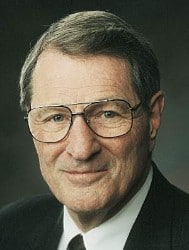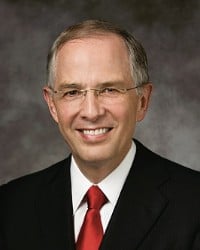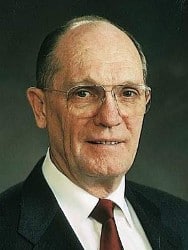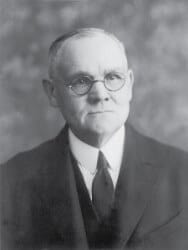
One cannot have adequate faith in a Christ whom he does not adequately know, “who is a stranger . . . far from the thoughts and intents of his heart.” (Mosiah 5:13) Instead, by laying aside “every weight” of the world and the sins which so “easily beset us,” by looking unto Jesus and by feasting upon His words, we will be able to move forward with intellectual and spiritual vigor. Otherwise, as Paul said, we can become wearied and faint in our minds. (See Heb. 12:1–3; see also 2 Ne. 31:20.) When we understand what was revealed to Adam – “[my] plan of salvation unto all men” (Moses 6:62) – then these doctrines are keenly relevant for tomorrow’s trial, Tuesday’s temptation, or next month’s surge of self-pity. After all, chastening, the trial of our faith, and patience are part of the plan. (See Mosiah 23:21.) . . .
If sought by faith (see Rom. 9:30–32), these doctrines of the radiant restoration enclose us in divine purpose during our sojourn in this “far country.” Like the prodigal son who “came to himself,” we thus receive needed perspective and direction as we also begin to “arise and go to [our] Father.” (See Luke 15:11–32.) . .
We will not be strangers in the City of God. We were there before, when the morning stars sang together and the sons of God shouted for joy at the prospects of this stern but necessary mortal existence. (See Job 38:4–7.) . . .The trek will be proving and trying. Faith, patience, and obedience are essential (see Mosiah 23:21; Abr. 3:25), but he who completes the journey successfully will be immeasurably added upon. (See Abr. 3:26.) And he who does not will have subtracted from the sum of his possibilities. . . .
Doers, said Jesus, will know that these doctrines are of God. (See John 7:17.) Therefore, do not be surprised when nondoers scoff. Do not be surprised, either, if these doctrines unsettle some. Such was the case when the ancient Apostles filled Jerusalem with their doctrines. (See Acts 5:28.) And when Jesus focused His hearers on doctrines, “they were astonished at his doctrine.” (Matt. 22:33) The only cure for the doctrinal illiteracy of those who murmur will be to learn doctrine. (See Isa. 29:24)
| “Called and Prepared from the Foundation of the World,” General Conference, April 1986




